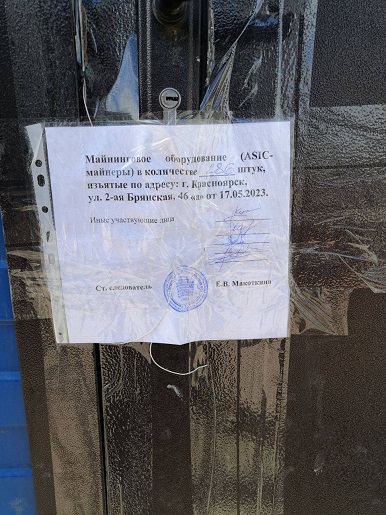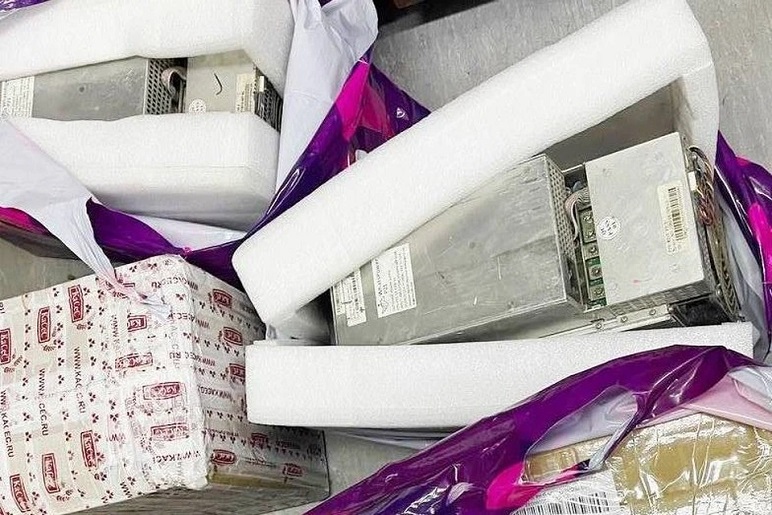
The regulation of cryptocurrencies and mining in Russia raises a huge number of questions – especially after the law was passed. Now the sphere is under the control of the state. This means that all “balcony” miners who work according to gray schemes can receive punishment in the form of a fine, confiscation of equipment or the establishment of a criminal case.
Illegal importation of equipment or bypassing customs duties is a common practice used by many miners. However, if it was safe before, now they put themselves at great risk. What penalties await users for “gray” mining, what cases of illegal cryptocurrency mining have already been recorded and how to avoid it?
The law on legalization of mining – what awaits miners
First of all, it is worth noting that the official legalization of cryptocurrency mining is a good sign, which shows the state’s support for this industry, as well as its further development. After the withdrawal of crypto mining from the “gray zone”, there will be many more opportunities for income growth, especially given the emergence of projects to integrate mining in the field of AI (artificial intelligence). Moreover, increased interest in the industry can be seen already now, which means that the number of miners will only grow.
Major changes for all participants:
- Miners need to declare profits, legally convert the mined coins and withdraw money to their bank accounts.
- Cryptocurrency mining is available to legal entities and individual entrepreneurs who are included in the Ministry of Digital Economy’s register. Russian residents who are not sole proprietorships will be able to mine coins without inclusion in the register within the established limits of energy consumption. The Russian government has not defined the exact limits.
- Miners from the register need to transfer wallet addresses and information about transactions to Rosfinmonitoring, the Federal Tax Service, the Federal Security Service and Rosimushchestvo.
- The government will be able to ban mining in certain regions.
- Most norms of the law will become effective on November 1, 2024. This is essentially when the legalization of mining will take place.
Before the adoption of the law, mining was not prohibited – there was no clear regulation, but there was still control over miners. Over the past few years, there have been dozens of cases when miners were prosecuted for illegal cryptocurrency mining – equipment was confiscated, criminal/administrative cases were opened, and fines were issued. The consequences are more and more serious each time: millions of dollars in sanctions and prison sentences.
One vivid example is a case in the Novosibirsk region, where the authorities discovered an illegal mining farm with 100 devices. The suspects were criminally prosecuted with a penalty of imprisonment of up to 5 years. Therefore, “gray” mining may not be as profitable as it seems.
5020 $
bonus for new users!
ByBit provides convenient and safe conditions for cryptocurrency trading, offers low commissions, high level of liquidity and modern tools for market analysis. It supports spot and leveraged trading, and helps beginners and professional traders with an intuitive interface and tutorials.
Earn a 100 $ bonus
for new users!
The largest crypto exchange where you can quickly and safely start your journey in the world of cryptocurrencies. The platform offers hundreds of popular assets, low commissions and advanced tools for trading and investing. Easy registration, high speed of transactions and reliable protection of funds make Binance a great choice for traders of any level!
How to mine crypto and avoid problems with the law?
To continue mining illegally and think that no laws will not affect the user is an objectively bad idea. If we refer to Article 16.21 of the Administrative Code of the Russian Federation “Illegal use of goods, their acquisition, storage or transportation”, products imported illegally, in respect of which customs duties, taxes or fees have not been paid, entail the imposition of an administrative fine of up to twice the value of the goods.
According to Article 194 of the Criminal Code of the Russian Federation “Evasion of customs payments, special, anti-dumping and (or) countervailing duties levied on an organization or individual”, non-payment of customs payments is punishable by a fine from 100 thousand to 1 million rubles or a prison term of up to 12 years. With the growing interest in mining and cryptocurrencies on the part of the authorities and after the legalization of this sector (which is already happening now), the methods of regulation and penalties will only become stricter.
For illegal mining equipment can be confiscated, as it happened in Krasnoyarsk: 286 ASIC-miners were confiscated from the owner for lack of documents for the equipment.
As one of the users specifies: “I have ASICs arrested in Krasnoyarsk. Hosting is arrested. For the second month they don’t give anything to anyone”.

Multimillion-dollar fines and seizure of equipment happen, as it happened in the Irkutsk region. The authorities revealed the illegal use of electricity supply at a preferential tariff. The owners were fined 200 million rubles and a criminal case was opened.
In Sochi on the Russian-Abkhazian border, illegal import of equipment was detained. As a consequence, the equipment was seized and an administrative case was opened.

And the worst that can happen is imprisonment and fines of tens of millions of rubles, as it happened in Krasnoyarsk, where the owners had to pay damages of 39 million rubles for illegal mining. Bypassing customs duties and using illegal equipment without supporting documents is something that the authorities are now actively monitoring. The FCS conducts raids and confiscates equipment not only in large data centers, but also at solo miners with several devices.
And it is not so difficult to catch illegal miners. As practice shows, the FCS has made the process of searching for miners as easy as possible and simply flies drones with thermal imaging cameras: it is not difficult to find active farms. Power supply companies see stable high consumption, as the asics work without breaks and weekends, and immediately conduct raids on dubious sites. Internet providers monitor the traffic of the equipment, which sends the results of work to the servers of mining pools. All processes have long been established, so illegal mining will not be able to go unnoticed.
With the adoption of the new law, which will come into force in November 2024, the attitude of the authorities will become even more serious – because of which the cases of catching “gray” miners will increase every day. Therefore, the only way to protect yourself is to switch to legal mining.
It should be understood that mining will no longer be a gray area, so all involved in this area should adjust to the new conditions.
If the user does not exceed the limits on energy consumption and works with legal equipment, nothing will change for him. When cryptocurrency mining is a business, the procedures for inclusion in the registry, tax payments may not be so scary. This will have a negative impact on net profit, but in return, the business owner will eliminate the risk of being fined or losing equipment. Therefore, the editorial board recommends switching to legal mining.
A mistake in the text? Highlight it with your mouse and press Ctrl + Enter
Author: Saifedean Ammous, an expert in cryptocurrency economics.














